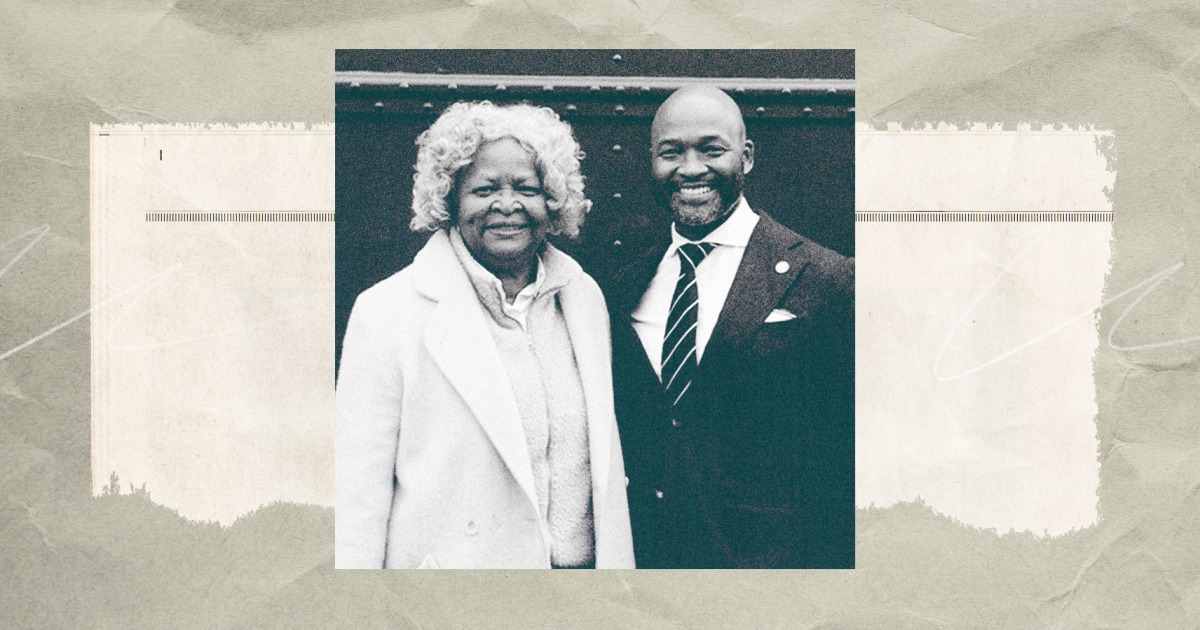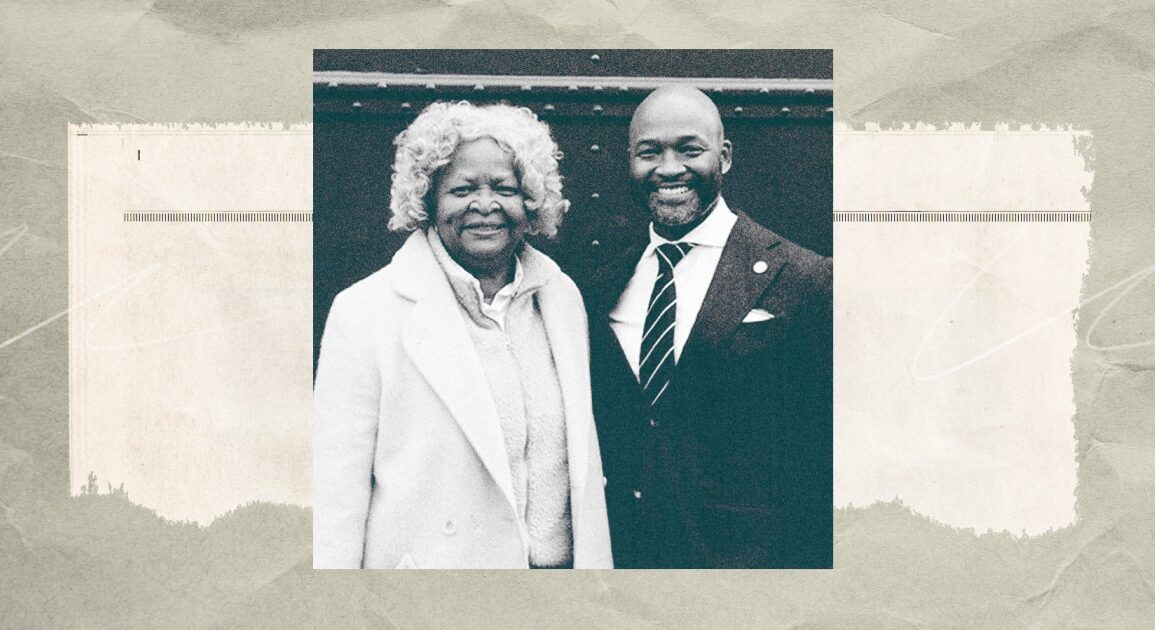
I would be lying if I said I never imagined myself on the business end of a gun. Southeast Louisiana has always been a violent place. The Dueling Oaks inside New Orleans’ City Park got that moniker honestly as it was the meeting place for the well-heeled to “resolve” their disputes with pistols. In modern times, our society’s unwillingness to rein in the unprecedented proliferation of firearms among civilians, combined with a decadeslong failure to address intergenerational poverty, trauma and lack of opportunity, creates a perfect storm for violence to proliferate.
My experience being carjacked has gotten so much attention because I am the district attorney in Orleans Parish, and I’ve advocated for policies aimed at accuracy and equity in our criminal justice system.
No one is immune to this American pandemic of violence. And on the evening of Oct. 17, when two people with guns approached me outside my car as my elderly mother sat inside, she and I joined the ranks of violent crime victims.
Many others in New Orleans have been carjacked. Take 73-year-old Linda Frickey, a beautiful soul who lost her life for not moving as fast as the carjackers desired. But my experience being carjacked has gotten so much attention because I am the district attorney in Orleans Parish; and during my campaign, and after, I’ve advocated for policies aimed at fair and humane treatment and accuracy and equity in our criminal justice system. I have done so because I believe these policies will make our system better and our community safer.
A few people have publicly gloated about me, the “progressive” DA, being carjacked. One far-right blog argued that, somehow, I contributed to my victimization, and my mother’s, because there’s a “D” next to my name on the ballot.
Americans love to pick sides and wear jerseys. We define ourselves by the petty things we believe distinguish us, rather than cleaving to those principles that unite us. We all want to be safe. Republicans and Democrats, traditionalists and progressives, conservatives and liberals, Black people and white people, rich and poor, all know that murder, rape and armed robbery are scourges.
I still firmly believe that the law and the legal process should be vehicles for change; forces that can uplift communities, address the root causes of crime and remove those who are harming our communities. I have not faltered in those convictions because I was carjacked.
I was focused on my elderly mother. I stood there as an easy target; but the fear that they would hurt her overpowered me.
In that heart-pounding moment as the carjackers accosted me and my eyes trained to the guns being pointed at my head, neither my political leanings nor my elected office could shield me from the raw fear and vulnerability of being a victim. My thoughts were racing during the commission of the crime, but I was focused on my elderly mother. I stood there as an easy target; but the fear that they would hurt her overpowered me.
Seeing my mother’s fear as she witnessed me — her only son — held at gunpoint still haunts me. And though she remains disquieted by the incident, her astonishing resilience and grace are humbling. We are on a journey of healing together, and neither one of us in any of the moments since that night has felt that an unfair or rigged criminal legal system would assist that healing, or that it would have prevented our ordeal.
There’s a phrase that’s often bandied about that says “a conservative is a liberal who got mugged.” This proposition is almost as dangerously polarizing as it is witty. It falsely presumes that Americans are more at odds than they are aligned as it relates to violent crime. We all want accountability and swift, fair punishment for those crimes.
Also, carjackers indiscriminately target victims without regard for their political ideologies. Typically, folks who live in the same marginalized communities as the offenders suffer the most from crime, but their victimization garners far less media attention.
The adage also grossly oversimplifies the complexity of political ideology and our basic human survival instinct; and it assumes that a terrible experience necessarily alters a person’s moral compass.
It hasn’t for me.
We know crime isn’t just a legal matter; it’s a social and communal issue that we must address as a society. Data shows it’s symptomatic of larger issues that cannot be remedied through punitive measures alone.
I understand “progressive” to mean more accurate, effective, strategic, focused and fair prosecutions, while committing to crime prevention by meaningfully intervening and investing in people.
As a district attorney and, before then, as a city councilman in New Orleans, I have seen the importance of balance in our collective approach to public safety. Policing and prosecution are vital, but they’re poor substitutes for early intervention for people living in abject poverty and who are beset by violence, mental health problems and substance abuse. I understand “progressive” to mean making more accurate, effective, strategic, focused and fair prosecutions, while committing to crime prevention by meaningfully intervening and investing in people.
In 2020, the United States experienced an unprecedented national spike in homicides. When I entered office as district attorney in January 2021, I directed my team to seize guns at every possible opportunity and to charge carjacking cases as armed robberies to increase the consequences. We have imposed sentencing enhancements on armed perpetrators and mandatory minimums on serial violent offenders. I, myself, have successfully tried multiple murder cases and serial rape cases.
One of our newer initiatives is a partnership with Bancroft Global Development, an NGO that uses intelligence to scour public or open sources of information to create pattern of life files on defendants and bolster cases. We built specialty units to stand alongside our nationally renowned Sexual Assault Kit Initiative Unit: a homicide unit, domestic violence unit and newly formed special victims unit.
Simultaneously, we have stayed committed to the work of our civil rights division, reckoning with and correcting the sins of the past. Addressing wrongful convictions has allowed us to rebuild long-squandered community trust in the legal system. We made a strategic, data-based decision to prioritize screening and prosecuting violent crimes, including carjackings, and not to waste limited resources padding our numbers by prosecuting nonviolent minor infractions and we recommitted to diversion and alternative programs like drug court and re-entry court. Our city has subsequently seen a steep decline in crime.
On the eve of my own carjacking, our local paper ran an extensive report on the decline of crime without mentioning a single initiative that my office has brought to bear on the problem.
While some commentators claim that “progressive” policies have caused crime to spike (ignoring the fact that “traditionalist” jurisdictions were experiencing parallel spikes and the fact that it began before I became DA) they have been deafeningly silent on those policies during the downslope.
In 2020, the year-over-year increase in the U.S. murder rate was the largest since at least 1905, according to the Centers for Disease Control and Prevention. The initiatives I implemented have directly corresponded with the one of the largest drops in murder and violent crime in the country. The only thing more striking than the historic drop in crime my policies have instigated is the astonishing silence from the conservative media. Indeed, just before my mother and I were carjacked, our local paper ran an extensive report on the decline of crime without mentioning a single initiative that my office has brought to bear on the problem.
My peace of mind hasn’t returned simply because three males were picked up after we were robbed by three males. I want the right people held accountable — through a fair trial with no hand on the scale. I have no desire to subject them to any harsher punishment; neither my security nor my mother’s sense of security will be restored simply because three people enter the legal system. That we hope to address with therapy and prayer.
My “mugging,” if you will, has recommitted me to my firm belief that we must keep working to address the causes of crime and to ensure the safety and security of all our residents. Bishop Desmond Tutu said: “There comes a point where we need to stop just pulling people out of the river. We need to go upstream and find out why they’re falling in.”
I still believe that time is now, even after staring down the barrels of guns.
This post was originally published on this site be sure to check out more of their content.







